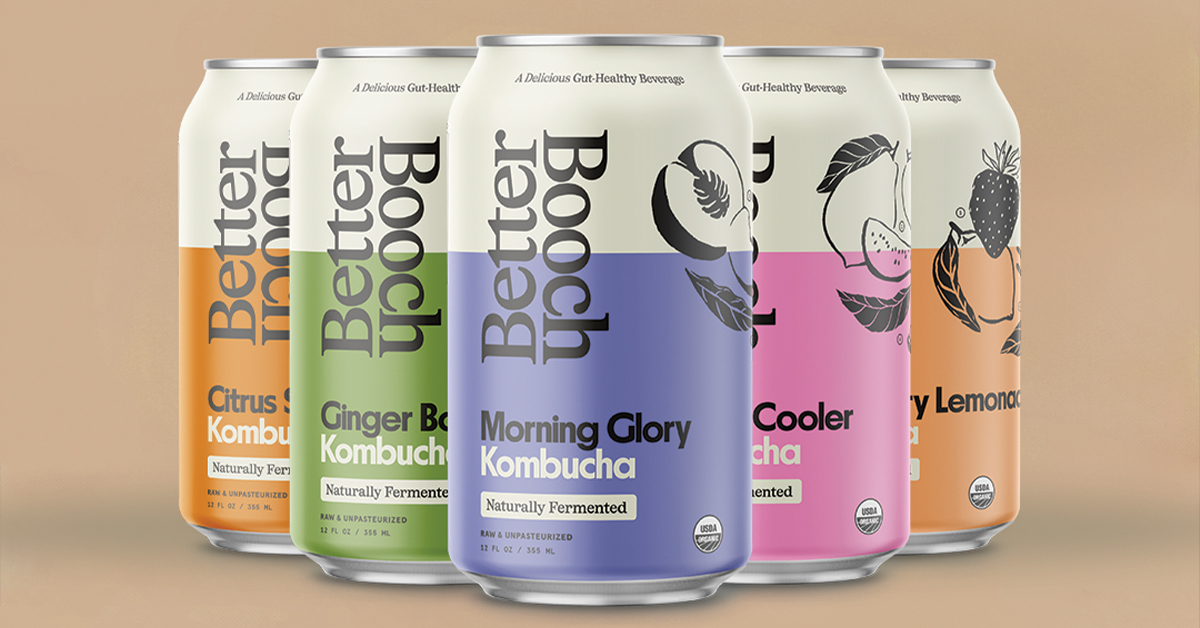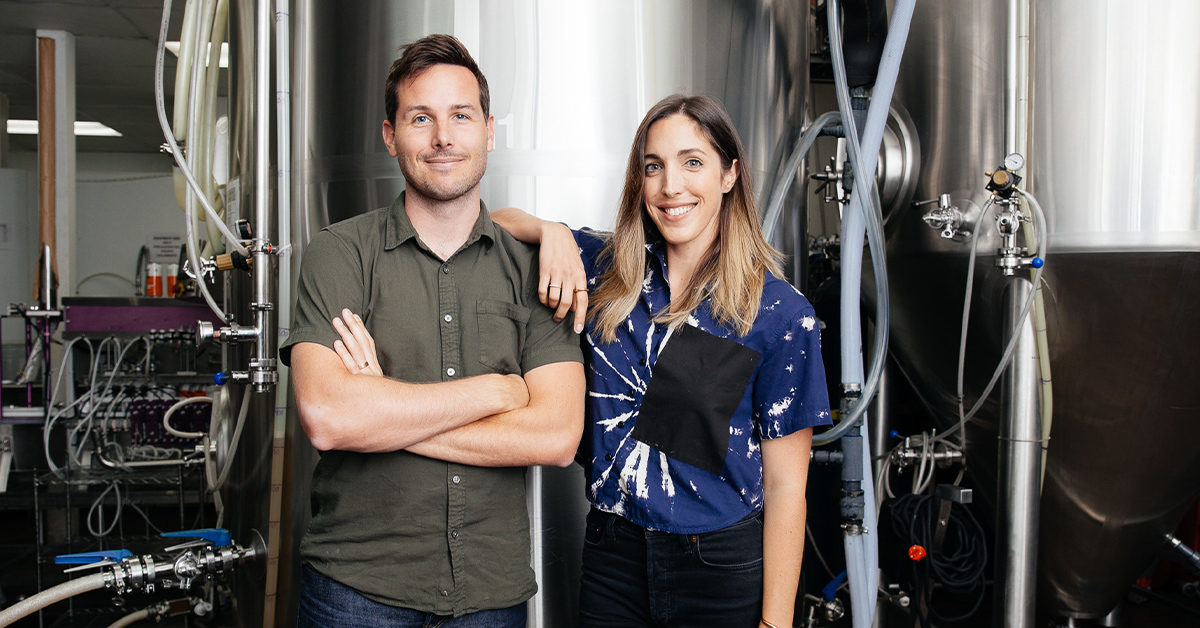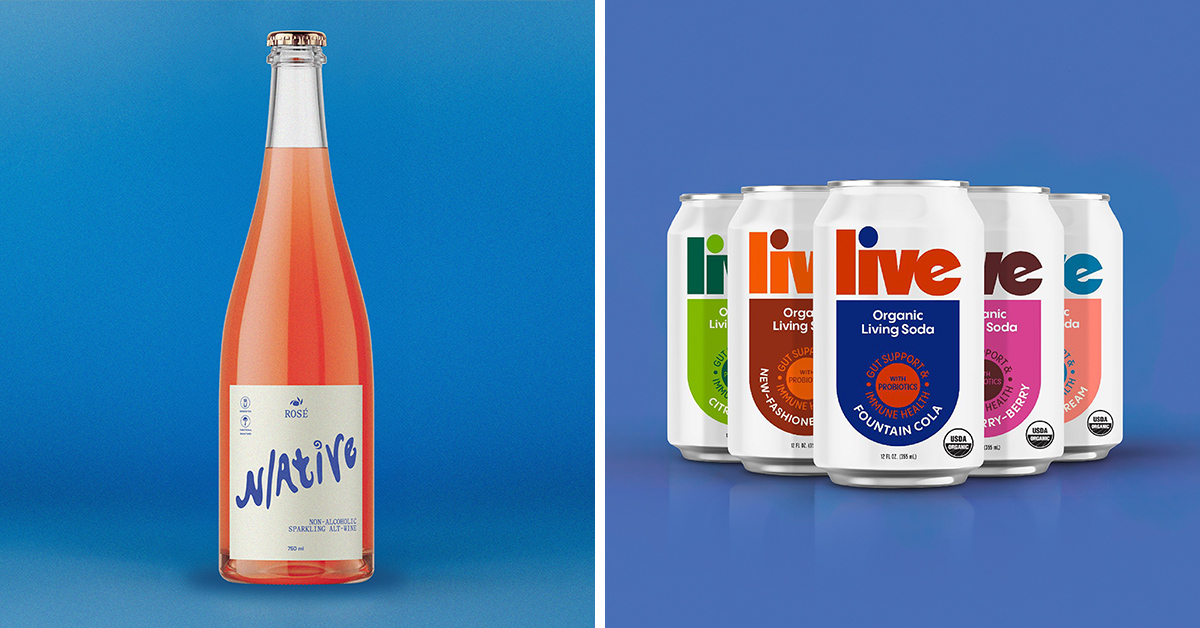
With the winds of change at its back, and a novel new ingredient in tow, Better Booch is powering forward under a new North Star of holistic wellness via the microbiome.
As with other fermented foods and drinks, probiotics have long been one of kombucha’s primary callouts, and also, crucially, one of the simplest for consumers to understand. And for the decades in which the category was outside the mainstream, that was largely enough.
Upon gaining broader market traction, kombucha makers – without the ability to make further functional claims on packaging – leaned into highlighting probiotics for digestion at the expense of further exploring the drink’s broad range of benefits, said Better Booch co-founders Ashleigh and Trey Lockerbie from Los Angeles earlier this week.
That’s changing, they noted, as the close relationship between the human microbiome and overall wellness has been extensively detailed over the past decade in scientific journals and university research, and broadly popularized through books like New York Times bestseller Gut and Netflix documentary series “Hack Your Health: The Secrets of Your Gut.”

Of particular interest was a Stanford study that found a diet rich in fermented foods significantly increased the diversity of gut microbes. The study also found these foods decreased 19 inflammatory proteins in the blood, including some linked to chronic diseases, while a high-fiber diet did not significantly affect the diversity of gut microbes or decrease inflammatory proteins.
“I think that science is finally catching up to what we’ve known innately for 12 years now, which is that the microbiome is sort of the key to overall health – physical, mental and even emotional,” said Trey, adding that the company is “seeing a lot of heavy lifting (on education) coming from elsewhere.”
Better Booch has seized on those favorable conditions to reposition under its new identity – Future Beverage Group – as a gut-health beverage platform brand. Its new hero ingredient, Native+, will be key to unlocking that change. Defined as a “combination of a prebiotic soluble fiber, nine strains of proven clinically-studied probiotics strains and a clinically-studied post-biotic,” Native+ aligns with research emphasizing the added benefits of having a diversity of strains, and is now part of every existing and future beverage product from the company.
Kombucha already produces pre-, pro- and post-biotics through natural fermentation, Trey acknowledged, but Native+ further enhances the benefits while helping the product stand out from the crowd.
“Gut health has become such a buzzword in itself to where it’s almost lost its meeting because you have so many companies making claims about gut health, so I’m really excited about this next wave of documentaries and research about fermented foods, specifically, and the way that they can improve gut health,” Ashleigh said. “We’re going to start to see a lot more clarity in that space.”

Within the new brand architecture, the individual roles for each of Future Beverage Group’s products are coming into sharper focus. LIVE Organic Living Soda, acquired last year, plays towards traditional soda aficionados with familiar flavors and more approachable branding, though the founders hope it can serve as a “gateway product” for the company.
The five-SKU refrigerated line, now in 12 oz. cans rather than glass bottles, remains popular within its limited distribution footprint in Texas, and is set to enter SoCal via DSD house LA Distributing soon. A major design overhaul led by Montreal’s Wedge Studio is set to debut in June.
Elsewhere, award-winning sparkling tea line CHA, currently seeding in SoCal stores, provides a different take on elevated natural refreshment with its four-SKU range of 12 oz. cans. CHA is available at regional chains like Lassens and Bristol Farms, with some DSD service as well.
Both Live and CHA have allowed Future Beverage Group to branch out without adulterating its flagship line, though there are some notable changes. The kombucha is moving from a 16 oz. to a 12 oz. can, a move partly intended to encourage people to pick up a second drink rather than just consuming just one per day; on the downside, it also required a UPC change. The smaller size drops the price to around $3.49 per can, down from a high of $3.99. There’s also a new spring seasonal release coming, Mango Delight, made in collaboration with Florida-based artist Gabriel Alcala.
But maybe the best indication of the company’s future goals comes from a product whose availability is the most limited. Inspired by their decision to ditch alcohol last year, the Lockerbies used a kombucha ferment as the base for developing a non-alcoholic “wine” akin to champagne, dubbed Native. The fledgling project, which sold out of its initial run of 750 ml bottles offered exclusively online, will add a second Rosé-inspired flavor in the coming weeks.
Experimental releases like Native wine demonstrate the value of Native+ as a versatile delivery system, but science doesn’t guarantee success. Fellow kombucha makers like FedUp Foods and Rowdy Mermaid have already staked out their respective claims as science-driven, functional wellness platforms, while brands including Goodbelly have built robust suites of gut-friendly products.
That’s good, says Future Beverage Group’s braintrust, but the work is far from over.
“I think it’s really important right now for people to get really clear on the idea that diversity of strains is actually the key benefit to gut health,” Trey said. “If you compare our products now to everyone else, I think we’re the ones bringing diversity to the table.”